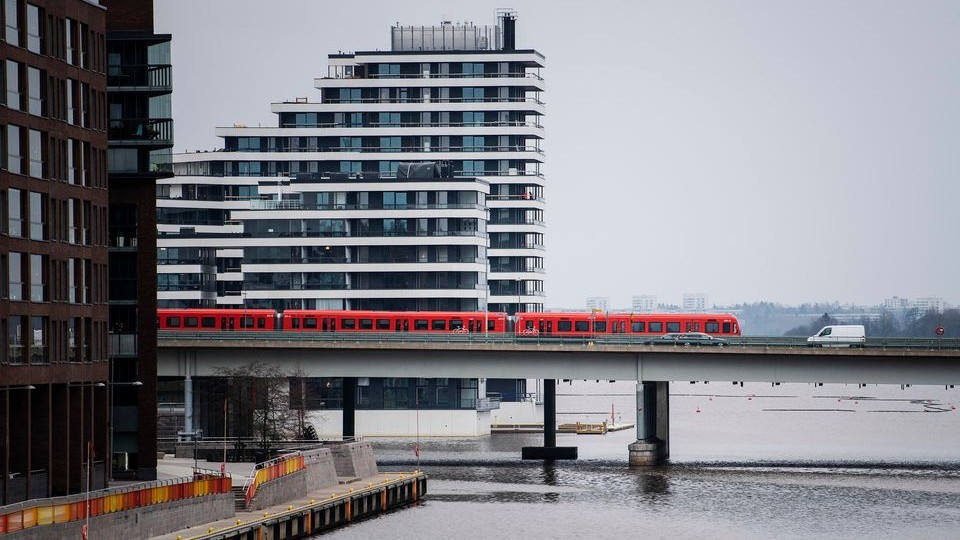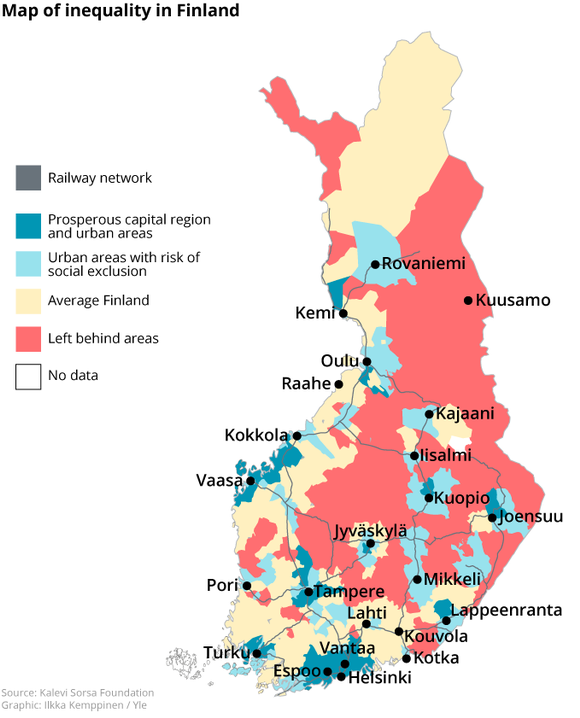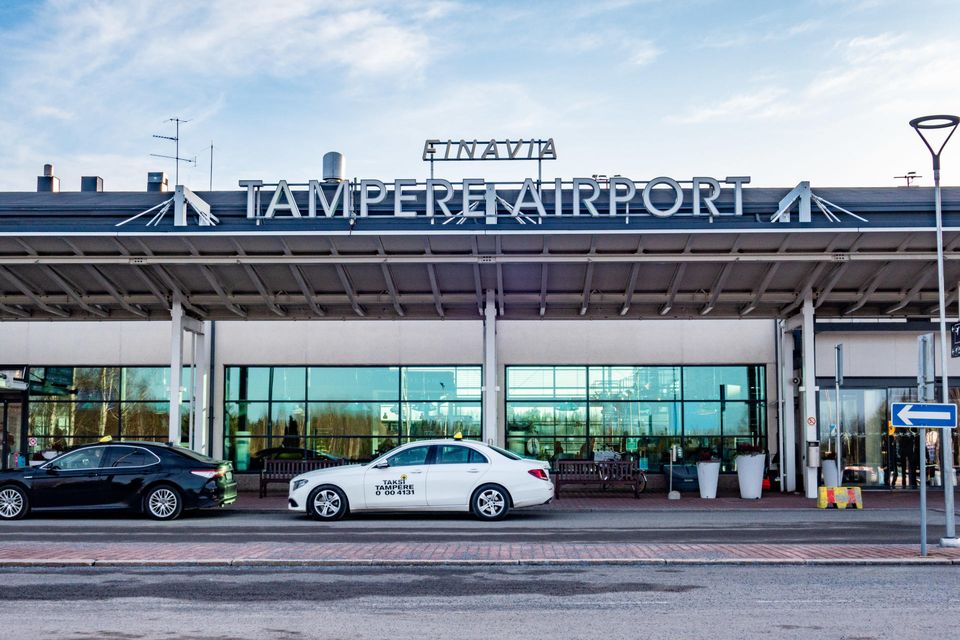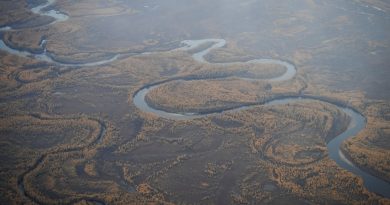Finland’s regional inequality laid bare in new report, with rural North amongst lowest scoring areas

The report, ‘Unequal Finland’, says differences between regions are at the heart of a growing national divide.
A new report published by social democratic think tank the Kalevi Sorsa Foundation is calling on the government to address a growing divide between Finnish regions.
The report, “Unequal Finland”, divides Finnish municipalities into four groups on the basis of social and economic indicators like median income, the local employment rate and the availability of broadband.
The report found that the best-performing municipalities were clustered around the Helsinki metropolitan area as well as regional centres like Tampere, Turku and Oulu.
The areas scoring lowest in the report’s assessment were found largely in rural parts of the north and east of Finland.

Islands of wellbeing
The Kalevi Sorsa Foundation’s director Pauli Rautiainen, who co-authored the report, said the report revealed some unexpected details.
“The most surprising thing is that the municipalities that best enjoy the benefits of urbanisation are those like Pirkkala in Pirkanmaa and Taipalsaari in South Karelia, for example,” he said.
“These islands of wellbeing near to regional centres enjoy the services brought by those cities and are where the benefits of urbanisation are particularly concentrated,” Rautiainen added.

The 43 municipalities that top the report’s ranking are home to about 2 million Finns, whose rates of employment, annual income and voter turnout are higher than in the rest of the country. The risk of child poverty and the dependency ratio (the ratio of working age people to those aged under 14 or over 65) are lower in these municipalities than they are elsewhere.
They include Tornio in Lapland, Siilinjärvi in North Savo and Kontiolahti in North Karelia.
Urban inequality
While so-called islands of wellbeing crop up around Finland’s cities, the report says the cities themselves are home to come of the county’s biggest inequality gaps.

“Income disparities in the Helsinki metropolitan area are the largest in the country and low-income households are most affected by the rise in the cost of living. Finland’s biggest differences in wellbeing can be found along the line of the Helsinki metro,” Rautiainen said.
Finland’s provincial cities, among them Turku, Tampere, Oulu, Kuopio, Vaasa, Seinäjoki, Joensuu and Lappeenranta fall into the report’s second tier – urban areas at risk of social exclusion.
“A higher than average proportion of people in these municipalities work in health and social care related jobs,” said Rautiainen.
Left behind
The 109 “lagging” municipalities in the report’s lowest tier scored below the national average in almost all indicators other than the size of the average home loan.
They are home to half a million people, and include areas in rural parts of central, eastern and northern Finland.
Redressing the imbalance between prosperous and left behind regions would require an overhaul of government policy on both a national and EU level, the report said.
Co-author Rautiainen said the findings showed that regional policy needed to be reformed with a focus on people’s wellbeing.
“We need to rethink regional policy. Links to multiple areas are ok. Our legislation has to take into account the fact that people do not necessarily only interact with one place, their place of residence, but with many places and services,” he said.
Related stories from around the North:
Canada: ‘If not this, then what?’ Nunavut Government in arctic Canada says economy needs controversial mining expansion, CBC News
Finland: The Arctic Railway – Building a future or destroying a culture?, Eye on the Arctic
Greenland: Political upheaval in Greenland — What does Inuit Ataqatigiit do now?, Eye on the Arctic
Russia: Can the environment withstand Arctic Russia’s coal mining boom?, The Independent Barents Observer
Sweden: Reducing emissions could create up to 3,000 new jobs in Arctic Sweden says mining group, Radio Sweden
United States: Conservation groups sue government over Alaska mining road, The Associated Press



